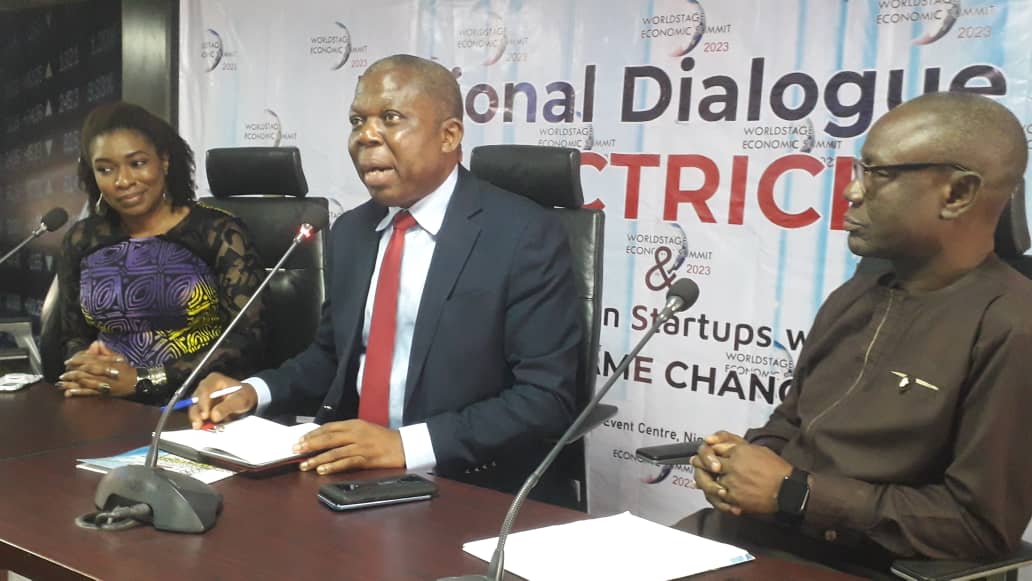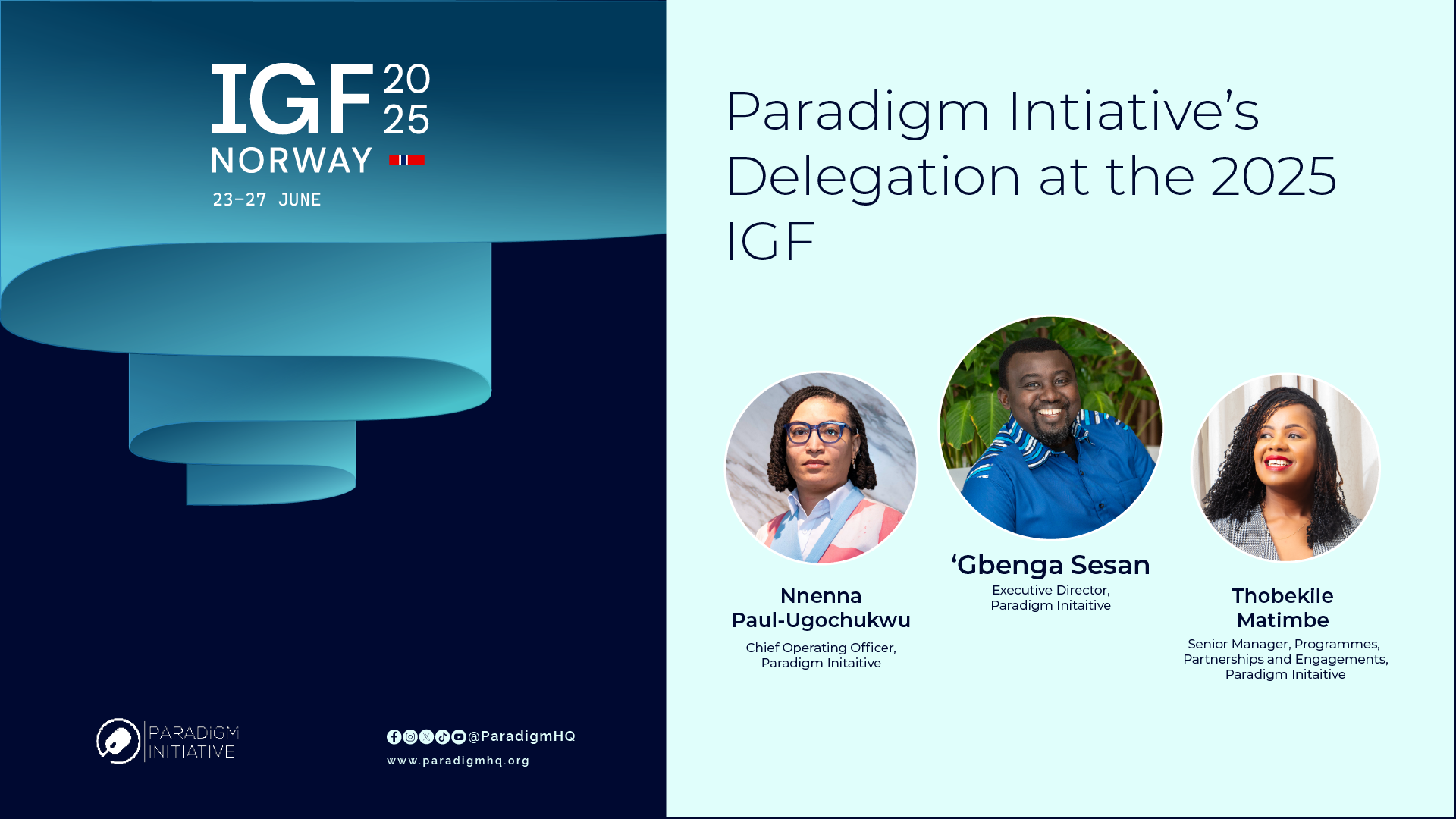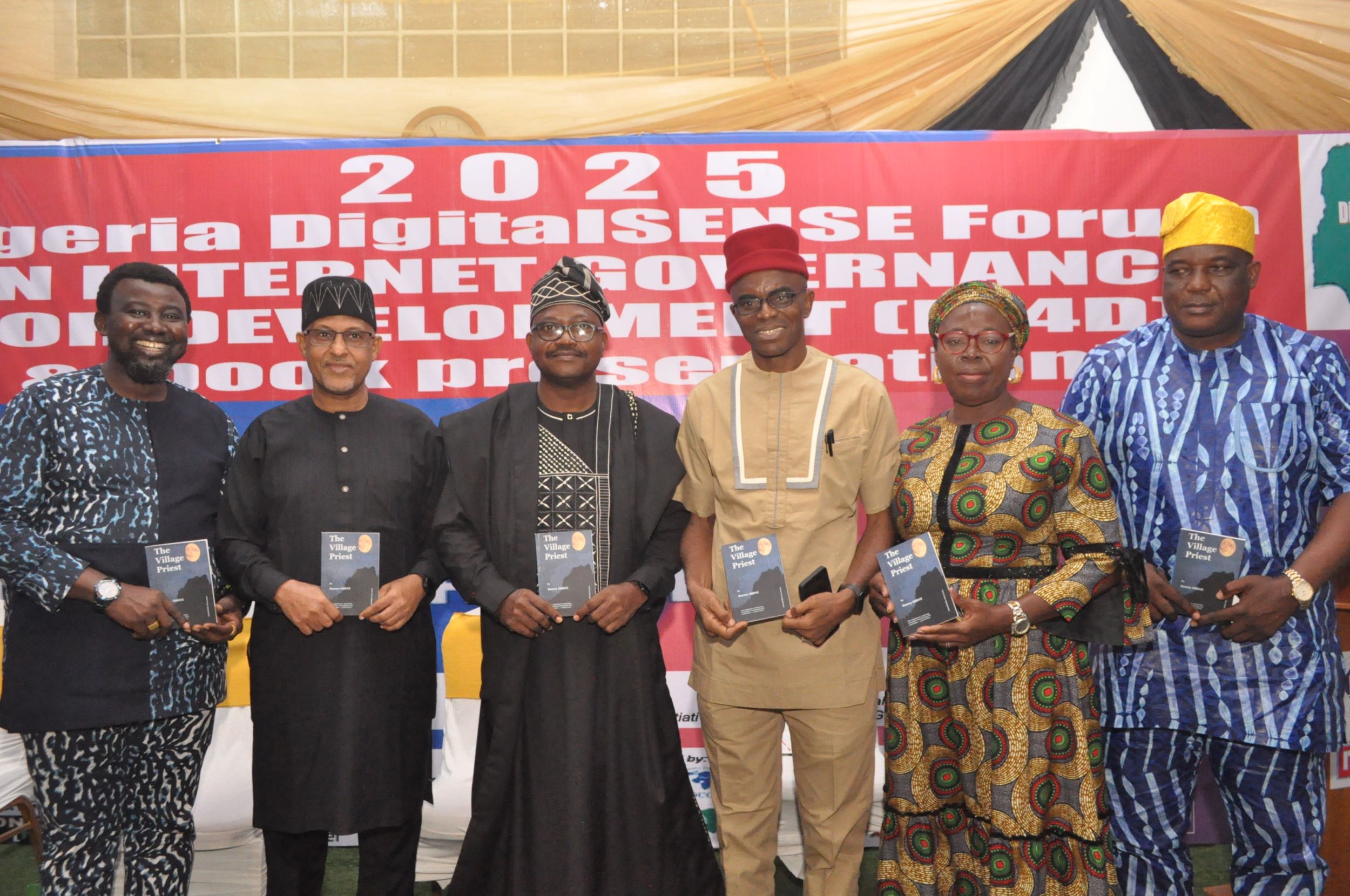Telecom
Stakeholders Brainstorm on Success Strategies for Startups @2023 WorldStage Economic Summit

Pioneer and successful players in startup businesses have unanimously advised that success could only come in the way of upcoming entrepreneurs through passion and perseverance rather than the desire to get rich quick.

L-R Mrs. Adekunbi Ademiluyi, MD, HumanManager Limited representing Mr. John Tani Obaro, Group Managing Director, SystemSpecs Holdings, Nigeria; Mr. Tim Akano, CEO, New Horizons Nigeria; and Mr. Mayowa Oludare, Editor-in-Chief of Global Financial Digest during panel discussion at the breakout session on WES 2023 tagged The Game Changers on Thursday, November 16, 2023 at the event centre , Nigerian Exchange, Lagos.
They gave the advice on Thursday at the breakout session on the WorldStage Economic Summit 2023 held at the event centre of the Nigerian Exchange, Lagos themed “The Game Changer.”
Moderated by the Editor-in-Chief of Global Financial Digest, Mr. Mayowa Oludare, guest speakers that took turns to share their experiences and address issues that were critical factors in understanding and running startup businesses to succeed were Mr. Tim Akano, CEO, New Horizons Nigeria; and Mrs. Adekunbi Ademiluyi, Managing Director, HumanManager Limited who represented the Group Managing Director of SystemSpecs Holdings, Nigeria, Mr. John Tani Obaro.
Giving a presentation on startups as the game changer, Mr. Akano admitted that it was always tough at the beginning but that passion and perseverance would make starters to overcome any challenge that might come their way in the build-up stages.
Reliving personal experience, he said it took him over 12 months to convince Nigerians about his startup which he started about 20 years ago after resigning from lucrative jobs with Coca Cola and Dunlop.
According to Akano, it takes perseverance to overcome challenges and it’s not a bed of roses to scale various hurdles for anyone ambitious to venture into startups. But every startup entrepreneur must have it at the back of their minds that the reward for solving problems is money and therefore make problem solving their focus if they desire to make headway, he stated.
Sounding out would-be startup entrepreneurs against failure, he warned against partnering with wrong people and to cut off with negative individuals who were only good at seeing challenges but not solutions.
“Don’t make a company of negative people, particularly the learned and academic who are fond of analysis to paralysis, only rolling out problems rather than solutions,” he warned.
He also advised upcoming startups that there is nothing bad in sharing ideas with people who may not be experts to avoid discouragement by people of much knowledge.
Asked if it’s advisable to engage partners from the start, he replied that it might be difficult to build a company with just one brain.
“The fear is understandable, but there’s no straight answer to it,” he said.
He however reminded the audience that Google was a product of some students and professors and that therefore it might not be a bad idea to have partners who are like-minded from the beginning.
He advised the youth not to be dominated by fear of the risk of bringing in people to co-own startup businesses.
Speaking on the benefits of mentoring and mentorship, Akano argued that not everyone could be a mentor but real mentors were called to serve other people, with little concern for reward.
Describing how critical mentors are to the generation of upcoming entrepreneurs, he quoted a statement by Albert Eistein that ‘he sees far by standing on the shoulder of a giant’ to support his position on the significance of mentorship.
“One has to be very bold to seek help, and youths have to be disciplined, trust-worthy and have value to contribute,” he admonished.
Akano highlighted other challenges to upcoming startups as fear of the unknown, overconfidence about break-even which in most cases fail expectations, and cash flow, which according to him is about retaining cash coming in rather than just inflow of cash.
In her own presentation on ‘Journey from conception to launch, Mrs. Adekunbi Ademiluyi agreed with Akano that understanding and knowing one’s passion is key to upcoming entrepreneurs to achieving success.
“Focus on your goals even when your plan is cascading,” she counselled.
She outlined other factors for success in entrepreneurship as understanding and engaging with community; asking the right questions with ideation; challenging the status quo; listening to unmet needs and desires of the world; conceptualizing by shaping ideas into tangible, viable and scalable solution – determining solution that fits the problem; creating a value proposition; defining business model; and putting a legal structure in place.
Ademiluyi also recommended execution based on nurturing ideas, refining and bringing them to life, processing product development, building workable teams and planning resources.
“A successful launch isn’t where the story ends, going live aims at monetization, customers’ satisfaction and creating new markets,” she elaborated.
Asked how idea could be translated to reality, she recommended that a plan should be created, concerns should be shared, structure should be put in place, ideas should be shared, strategic partnership should be initiated, and knowledge of what moving from point A to B in the growth process meant and entailed must be established.
She mentioned the contributions of the government at encouraging startup businesses as instituting the Bank of Industry (BoI), Micro finance banks etc to ensure easy access to funding for financially deprived individuals that sought to go into startups.
Responding to the question about the fintech sector being dominated by technical people, she said it was because investors and venture capitalists always looked for technologists and that those that applied for their jobs were people with a background in financial technology.
To halt or curb the “japa” syndrome currently depriving Nigeria the services of her bulk of professionals, Ademiluyi submitted that it’s a global challenge that’s not limited to Nigeria alone. However, she saw an opportunity in the challenge
“In every problem there is an opportunity. It’s a global issue. There’s even domestic japa where people resign their jobs and prefer to work on their own. There are opportunities in Nigeria, we only need to adjust ourselves to curb the lure of japa,” she reasoned.
To further curb the phenomenon of ‘japa’ she called on the government at all levels to improve on infrastructures for people to be interested in the country. She equally advocated improvement of the educational system as well as the social factors.
In his opening remark, the President/CEO of WorldStage, Mr. Segun Adeleye said WES 2023 was accommodating a special breakout session tagged Startups on WorldStage with the Theme: ‘The Game Changers’ for founders, startup enthusiasts, corporates, angel investors, and media to network and chart the way forward.
He said, WorldStage, a globally focused media group with strong business/economic contents, is leveraging its capacity to engage the emerging startups and project them for global visibility.
“Data from the National Bureau of Statistics indicated that unemployment and underemployment rates increased to an all-time high of 56.1 percent in 2020, pushing 133 million Nigerians into multidimensional poverty with economic growth not inclusive as it faced key challenges of lower productivity and weak expansion of sectors with high employment elasticity,” he said.
“Getting the youths to work must be an immediate task for the government and will be driven by fixing productivity through combinations of policies that cut across some strategic sectors of the economy.
“Many startups that need to be encouraged are developing technology to solve identified problems in payment systems, insurance, agribusiness, e-commerce among others. The beauty of their emergence is that their concepts are globally acceptable, making them eligible to expand to other countries while attracting foreign exchange and creating new jobs.”
Telecom
Lebara, New Operator Enters Nigerian Telecom Arena, Sells Minutes, Not Airtime

Lebara Nigeria has officially stepped into Nigeria’s bustling telecom market with the introduction of its unique 0724 number series—a bold move that promises fresh competition and a more transparent user experience.

Leveraging its status as a Tier 5 Mobile Virtual Network Operator (MVNO), the company is positioning itself not just as another telecom player but as a catalyst for change, offering innovative packages built on fairness and clarity.
From day one, Lebara Nigeria has been ready to compete with industry giants like MTN, Airtel, Globacom, and 9mobile, having secured full interconnectivity with all of them.
This critical footprint ensures that its voice and data services are accessible and of high quality nationwide.
Akin Adesokan, Lebara’s chief operating officer, highlighted the company’s strategic intent: “Our readiness with the 0724 series and full interconnect setup underscores our unwavering commitment to seamless integration, customer freedom, and market inclusivity.” Indeed, the company has taken considerable steps to ensure regulatory compliance and operational strength, leveraging its global expertise as an MVNO and its freshly minted licence under the NCC’s highest tier.
What truly differentiates Lebara’s offering is its unconventional pricing model. Eschewing traditional prepaid airtime, it sells voice bundles and data packages that align with real usage, not ambiguous credit deductions. “You buy minutes, not airtime. If your call ends in 30 seconds, you still have 99 minutes and 30 seconds left. That’s the kind of clarity and control we are bringing to Nigerian telecoms,” explained Samuel Alabi, head of Corporate Communications.
This clarity responds to a long-standing frustration among Nigerians, where ₦100 airtime often disappears quickly and opaquely. Lebara’s minutes-based system offers predictability and transparency—a refreshing contrast in a market hungry for accountability.
Lebara’s entrance is more than a marketing exercise; it’s a strategic diversification of Nigeria’s mobile ecosystem.
With over 220 million active mobile lines, Nigeria is Africa’s biggest telecom consumer.
The NCC’s move to licence 41 MVNOs, including Lebara, illustrates a policy shift aimed at introducing more competition and improving service quality. Technically agile and digitally native, Lebara leverages existing network infrastructure, augmented by automated systems—a lean operation compared to the capital-intensive MNO model.
he status quo. With strategic execution and continued regulatory support, this could mark the beginning of a new chapter: one where Nigerians no longer need to ask, “Can you hear me now?” but instead say, “Yes—and I know exactly what it cost.”
Telecom
PIN Pushes for Equitable Digital Governance at World Internet Forum

As the 20th Global Internet Governance Forum (IGF) opens in Lillestrøm, Norway, leading pan-African social enterprise Paradigm Initiative (PIN) is championing grassroots voices in global digital policy discussions.

Running from June 23–27 under the theme “Building Digital Governance Together,” the IGF unites stakeholders from civil society, governments, the private sector, and technical communities to tackle pressing digital issues such as access, AI ethics, surveillance, and content moderation.
The discussions also contribute to the upcoming World Summit on the Information Society (WSIS)+20 review in December 2025.
PIN’s participation comes at a time when digital governance decisions are increasingly shaping the future of billions. “It is essential that grassroots solutions are heard,” said ‘Gbenga Sesan, Executive Director of PIN. “At PIN, we believe that meaningful digital inclusion requires more than just connectivity.
“It demands inclusive, progressive and sustainable policies and frameworks built taking the realities of grassroots stakeholders into consideration.”
Representing PIN at IGF 2025 are Sesan, Chief Operating Officer Nnenna Paul-Ugochukwu, and Senior Manager for Partnerships and Engagements Thobekile Matimbe. They will engage in strategic sessions on topics like connectivity in excluded communities, AI accountability in content moderation, and human rights in emerging tech.
The team will also participate in coordination meetings with partners including Meta, UNESCO, the Freedom Online Coalition, and GPD.
PIN’s presence at the forum underscores its ongoing mission to embed digital rights within grassroots realities and to ensure that global internet governance frameworks are inclusive, accountable, and responsive to the needs of marginalised communities.
Telecom
Remmy Nweke’s “The Village Priest” Garners High Praise from Tech Community

Information and Communications Technologies (ICT) stakeholders have applauded the latest in bookshelf by Remmy Nweke, the Village Priest, which was presented at the recently concluded Nigeria DigitalSENSE Africa Forum on Internet Governance for Development (IG4D) in Lagos.

The presentation and review of the book, “The Village Priest” by Ogbuefi Remmy Nweke, largely described as a powerful narrative explored the intersection of tradition and innovation in rural Igboland, received widespread acclaim, with its themes resonating deeply with the event’s focus on ‘Global Digital Compact: Opportunities for Multi-stakeholders in Nigeria.’
The highly anticipated review was delivered by Mr. ‘Gbenga Sesan, Executive Director of Paradigm Initiative (PIN), a renowned social entrepreneur and advocate for digital rights and inclusion in Africa.
Sesan lauded Nweke’s prose fiction for its insightful portrayal of “innovative technology adaptation transforming rural communities,” describing it as “a careful work of cultural documentation, offering not just a story but a chronicle—a record of transition that many rural and even urban African communities continue to live through.”
Sesan’s review highlighted the book’s central character, Ogboo AniEze, the revered chief priest of Ilimefo, whose life is dedicated to preserving his village’s customs. The narrative unfolds as “the village and its people, their traditional practices and strong cultural heritage at the crossroads!” with the arrival of GSM technology—a “strange and mysterious piece of technology” that initially challenges Ogboo AniEze’s traditional views.
The review detailed the chief priest’s journey of reconciliation, from initial fear of GSM eroding cultural heritage to a profound understanding that the technology “also offered opportunities for growth, development, and connection with the wider world.” This transformation leads to a new era of harmony in Ilimefo, where “tradition and modernity coexisted in balance.” The book beautifully illustrates how mobile phones become “a powerful tool for preserving the village’s cultural heritage” and how interfaith collaboration, particularly with Catholic priest Fada Ekie, fosters a “fusion of traditions” and a “new spiritual identity.”
“It teaches us, without preaching,” Sesan concluded, “that true innovation is not in abandoning our roots, but in strengthening them with new tools.”
This year’s Nigeria DigitalSENSE Forum, was presided over by Dr. Jimson Olufuye, former President of the Information Technology (Industry) Association of Nigeria and a member of the UN Secretary-General’s IGF Multistakeholder Advisory Group (MAG), served as a crucial platform for discussing the future of digital governance.
Olufuye also commended the author, Nweke for his perseverance in serving the ICT industry as well as endearing documentation of the sector.
For the Managing Director, Internet Exchange Point of Nigeria, Mr. Muhammed Rudman, the latest book by Nweke depicts the gift of in depth creativity and urged him on, despite the challenges the sectorial environment throws at industry players.
Organized by ITREALMS Media and hosted under DigitalSENSE Africa (DSA), an At-Large Structure certified by ICANN, the forum brought together key partners including the Nigerian Communications Commission (NCC), Internet Exchange Point of Nigeria, Internet Society Nigeria chapter, Association of Licensed Telecoms Operators of Nigeria (ALTON), and ICANN.
The NDSF series, running since 2009, continues to “motivate public discourse and create awareness on the technological cum business benefits of rapidly advancing technologies capable of impacting on Internet Governance, Internet Protocol (IP) addresses and domain name industry, access and affordability,” while offering a vital platform for industry networking.
The event not only celebrated the literary achievement of Ogbuefi Remmy Nweke, a multiple award-winning journalist, but also reinforced the commitment of ICT stakeholders to fostering digital inclusion and innovation across Nigeria.

 Telecom1 day ago
Telecom1 day agoMTN Says New N6.98 USSD Charge Won’t Affect Airtime Recharge

 Telecom1 day ago
Telecom1 day agoNnaemeka Ani Calls on African Techies to Rewrite the Narrative

 General News1 day ago
General News1 day agoStudy Reveals 7% of Industrial Organizations Tackle Vulnerabilities Only When Necessary

 E-Financial1 day ago
E-Financial1 day agoSofri Rejigs Digital Platforms for Better Customer Experience

 General News1 day ago
General News1 day agoNITDA, NCFRMI Forge Strategic Alliance for Inclusive Digital Transformation of Displaced Nigerians

 Telecom1 day ago
Telecom1 day agoCrypto Scam Unmasked: U.S. Recovers Record $225m in Global Fraud Bust

 E-Financial1 day ago
E-Financial1 day agoDLM Group Unveils Innovative Sovereign Bond Backed Composite Notes

 E-Financial11 hours ago
E-Financial11 hours agoS&P Global Ratings Downgrades Ecobank Nigeria’s Credit Rating to CCC-, Outlook Negative



























